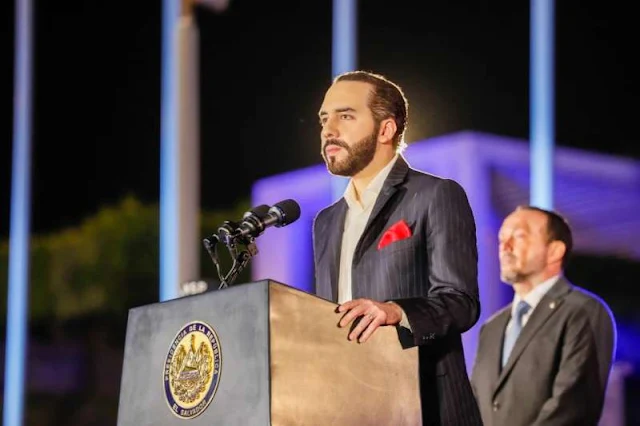El Salvador President Nayib Bukele declared on September 15 during a live-streamed Independence Day celebration that he would run for reelection in 2024.
Bukele made his statement despite El Salvador’s previous presidents being forbidden by law from serving two terms in succession. The president said, “Developed countries have reelection, and now El Salvador will too, owing to the new structure of the democratic institution of our country.”
Overall, Bukele appears to have strong popularity, as seen by the 85% approval rating of his presidency and the 95% acceptance rating of his governance in security concerns reported in a CID Gallup poll conducted last month.
El Salvadorians nevertheless protested in the streets after the announcement. Numerous issues regarded objectionable under Bukele’s administration, including the incorporation of Bitcoin, drew thousands of protesters.
In September 2021, when Bukele was president, the cryptocurrency Bitcoin was made legal tender in the nation. After a year of consistent price drops, the largest cryptocurrency in the country just celebrated its first launch anniversary.
The local public is not as interested in cryptocurrencies as one might assume, despite the introduction of educational initiatives focused on Bitcoin, such as “Mi Primera Bitcoin” (my first bitcoin), and serving as an example to neighbouring nations like Columbia and Venezuela.
A national survey from February of this year showed that 20% of the population actively used the Chivo Wallet, El Salvador’s preferred crypto wallet, for Bitcoin transitions. Otherwise, more than double the number downloaded for the initial free gift of $30.
Only 20% of polled business owners said they accept crypto payments, most of which were larger enterprises rather than small-scale shops.
On the other hand, adopting Bitcoin as a legal tender has introduced a new type of crypto-tourist to the country, despite the bear market. According to official numbers, local tourism was up by 82.8% this year.
Critics continue to go back and forth on El Salvador’s usage and adoption of Bitcoin. Thousands may be protesting on the street against the policies surrounding digital currency. However, some still see it as technological and financial advancement for a developing country like El Salvador.



